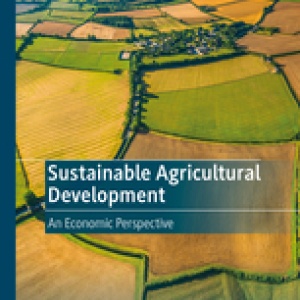
This book sets out an accessible framework for understanding the role of agriculture in sustainable development, focusing on agriculture as a complex system with many tradeoffs and synergies.
Publisher’s summary
This book provides a non-technical, accessible primer on sustainable agricultural development and its relationship to sustainable development based on three analytical pillars. The first is to understand agriculture as complex physical-biological-human systems. Second is the economic perspective of understanding tradeoffs and synergies among the economic, environmental and social dimensions of these systems at farm, regional and global scales. Third is the understanding of these agricultural systems as the supply side of one sector of a growing economy, interacting through markets and policies with other sectors at local, national and global scales. The first part of the book introduces the concept of sustainability and develops an analytical framework based on tradeoffs quantified using impact indicators in the economic, environmental and social domains, linking this framework to the role of agriculture in economic growth and development. Next the authors introduce the reader to the sustainability challenges of major agroecosystems in the developing and industrialised worlds. The concluding chapter discusses the design and implementation of sustainable development pathways, through the expression of consumers’ desire for sustainably produced foods on the demand side of the food system, and through policies on the supply side such as new more sustainable technologies, environmental regulation and payments for ecosystem services.
Reference
Antle, J. M. and Ray, S. (2020). Sustainable Agricultural Development: An Economic Perspective. Palgrave Macmillan, London.
Read more here. See also the Foodsource building block What is sustainable intensification?












Post a new comment »